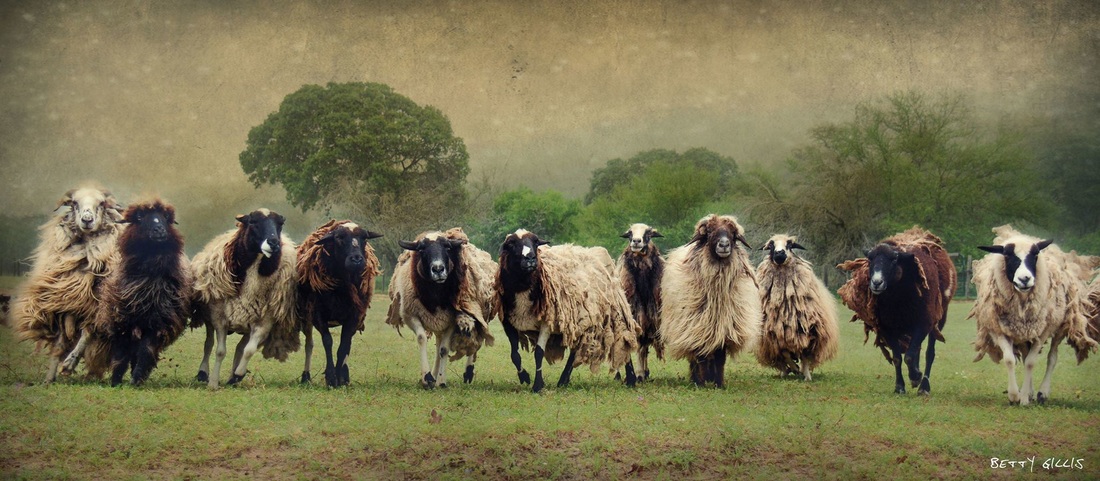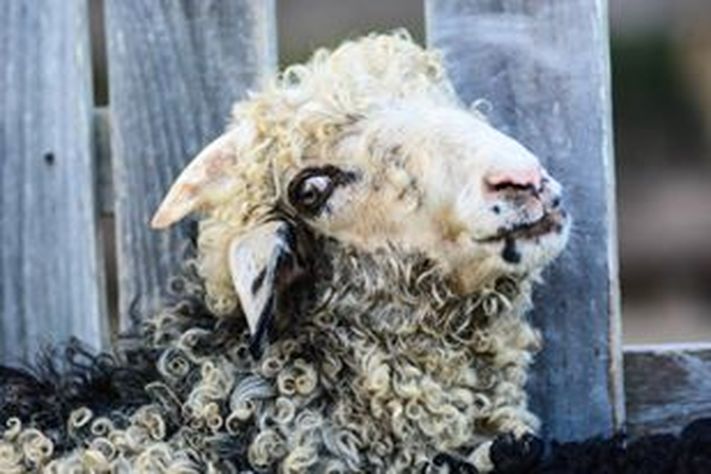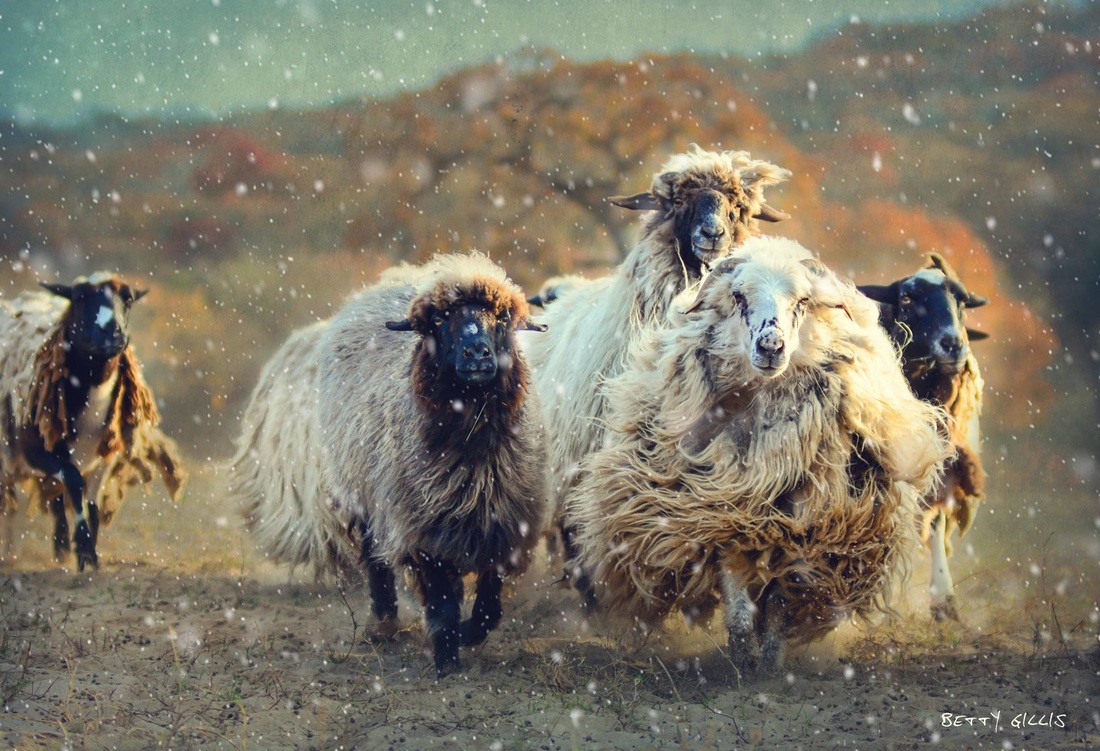In the 1950s, the Karakul sheep were imported to North America for the fur trade. The pelts of the unborn or newborn Karakuls are black or brown tightly curled wool which retains the curl only if the lambs are slaughtered at birth. Thousands of Karakul sheep were brought in for the popular lamb fur coats and hats of the 1950's, that is until the people learned where the pelts actually came from. Once it was discovered that the fur was not fur, but wool from newborn or in some cases lambs taken in utero, people were outraged and quit buying the fur coats and hats. So, the sheep were slaughtered by the thousands. And that was the shame of it all.
Karakul are hardy sheep, able to thrive in harsh environments and fatten on marginal forage. Compared to the modern breeds, the Karakuls remain plump just from pasture and hay, while the newer breeds must have grain to put weight on the carcass. Even the Karaul cross Cotswold ewe I have is a large sheep with a good thick body. But the Karakuls also produce fantastic fleece, not wool for spinning, but coarse long fibre, as long as 14 inches in a season at no cost to their meaty carcass development. The modern sheep are either wool or meat with a few exceptions, while Karakuls easily produce their spectacular wool and keep their meaty frames filled. They are also pest resistant and have very good feet.
Karakul ewes are exceptional mothers, raising twins easily and nursing lambs well into four months without condition loss. The rams spot spectacular frames with large horns and are magnificent to look at, though I have only had the pleasure of seeing them in photos.
I commented on a picture on Facebook recently and contacted the owner of the photo who sent along some with permission to use them in this writing about Karakuls. She is a professional photographer and also has her own Karakul sheep, so the photos are spectacular. I would like to find a ram and next year will diligently try to bring one up from the states. Then I can breed the three Karakul ewes I have and produce some more amazing sheep, hopefully interesting others in the fabulous breed. They are fat tailed, that is the nutrients and nourishment and water is stored in the tail, as a camel stores such in the hump. A well fed prosperous Karakul will have a fat tail. In poor times the tail size diminishes considerably allowing the Karakuls to thrive where others would fail. Amazing!
Thank you to Betty for the use of her photos. They too are amazing. Amazing pictures of amazing sheep! Amazing! The photographer is Betty Gillis from Texas. Thank you Betty.




 RSS Feed
RSS Feed